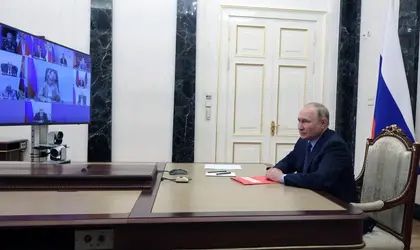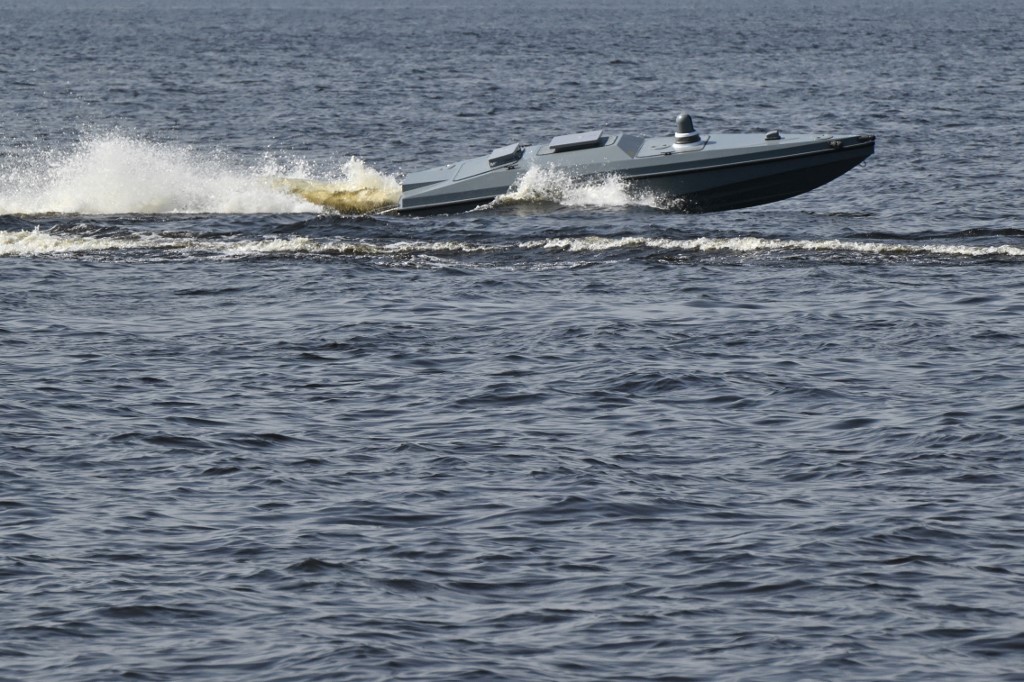Russian Defense Minister Sergei Shoigu has called the possibility of Russia using nuclear weapons against Ukraine “absurd”. Speaking at the 10th Moscow Conference on International Security on August 16, he underlined that Russia does not need to use nuclear weapons in Ukraine because “its main purpose is deterring a nuclear attack”.
He also said that the responsibility for the death of the civilian population in Donbas “is borne by Western countries through the supply of weapons, and NATO has no doubt that the goals of the special operation set by Russia will be achieved”. Shoigu again reiterated the thesis of Russian propaganda that “Kyiv in a hybrid war against Russia is controlled by the combined forces of the West”.
However, since the beginning of the full-scale invasion, the Russian Federation has repeatedly threatened the world and Ukraine with the use of nuclear weapons. First, on February 27, Vladimir Putin ordered his country’s deterrent forces, including nuclear weapons, to be placed on high alert.
Then on June 25, at a meeting with his ally, Belarusian President Aleksander Lukashenko, he promised to transfer Iskander-M missile systems to Minsk, which can carry missiles armed with nuclear warheads. All these actions are aimed at forcing the Ukrainian government to sit down at the negotiating table on Russia’s terms.
However, Russia resorts to nuclear blackmail in all sorts of ways. On February 24, the occupiers illegally seized the Chornobyl nuclear power plant and also bombed the Neutron Source research nuclear facility in Kharkiv.

Europe Must have a Voice in Peace Talks to end Russia’s War, Says Zelenskyy
Subsequently, on August 10, the National Academy of Sciences (NAS) appealed to the world community to recognize the actions of the Russian Federation at the Zaporizhzhia Nuclear Power Plant (ZNPP) as nuclear terrorism. This is how NAS responded to the impact of Russian missiles near the dry storage facility for spent nuclear waste at the ZNPP on August 6.
Since Russia began its full-scale war on Ukraine, Putin has resorted to various types of terrorist acts. So, for example, the long-term missile terror waged against Ukrainian cities and the atrocities of the Russian military in territories they occupied in yiv Region, particularly in Bucha, were aimed at intimidating Ukrainian society and forcing Ukrainians to surrender. The blocking of Ukrainian ports that export grain is also a form of blackmail due to threats of a food crisis. But the numerous interruptions of gas supplies to European countries, if their leadership does not agree to Russia’s terms, can also be identified as a separate form of blackmail.
This is the special handwriting of Russian President Vladimir Putin. Throughout his political career he has resorted to various types of blackmail in order to achieve his goals on the international political arena.
When he came to power, he organized terrorist attacks on domestic, civilian buildings with the help of Russian special services. This made it possible to accuse the Chechen Republic of Ichkeria of creating terrorist organizations and then start a war of aggression against it, greatly increasing his ratings in the country.
Subsequently, he exported these methods to the world.
Repeatedly resorting to gas blackmail, he achieved his goals. Thus, the Russian government put pressure on Belarus, cutting off gas supplies several times. Gas-based conflicts between Russia and Ukraine have also flared up on more than one occasion. In 2008, Putin threatened to cut off Ukraine’s gas supply on air, arguing that “Ukraine is not a reliable transit nation”. Russia accused Ukraine of stealing gas.
Using such methods, Putin also pressured European politicians during the construction of the Nord Stream-1 and Nord Stream-2 gas pipelines. Moreover, with the help of gas supplies, Putin bought the loyalty of certain European politicians by giving out discounts for actions on carrying out implementation of larger geopolitical interests.
By creating the problem of large numbers of refugees in Europe from Africa and Syria, Putin insisted that Russia is the guarantor to the solution of this problem. And yet it was Russia that bombed cities in Syria and used chemical weapons there, thereby worsening the situation with refugees. This forced many European politicians to sit down at the negotiating table with Russia.
In the summer of 2021, the president of Belarus, with the support of the Kremlin, resorted to direct blackmail, turning Belarus into a trafficking country for migrants from Iraq, Syria and Afghanistan.
Lukashenko then declared that Belarus would no longer deter attempts by illegal migrants to enter EU countries. That is, the “Belarusian transit” route was created by the state and worked hand in hand with support from the Belarusian authorities.
“Lukashenko uses refugees as a tool to put pressure on European countries. Lukashenko is none other than the head of the state smuggling network,” said German Foreign Minister Heiko Maas.
Moreover, by creating quasi-territories like the Nagorno-Karabakh Republic, Donetsk People’s Republic, and the LPR, the Russian government trades its interests for a stronger position on the geopolitical arena.
Recently, Russia also began to “trade” basketball player Brittney Griner and espionage suspect Paul Whelan, who were both detained in Russia in March, for illegal arms dealer Viktor Bout. This was reported by CNN on July 28. Thus, the top leaders of the Russian Federation, by resorting to pressure on the “pain points” of various countries, attempts to force them to agree to conditions that are beneficial to Russia.
You can also highlight the text and press Ctrl + Enter






